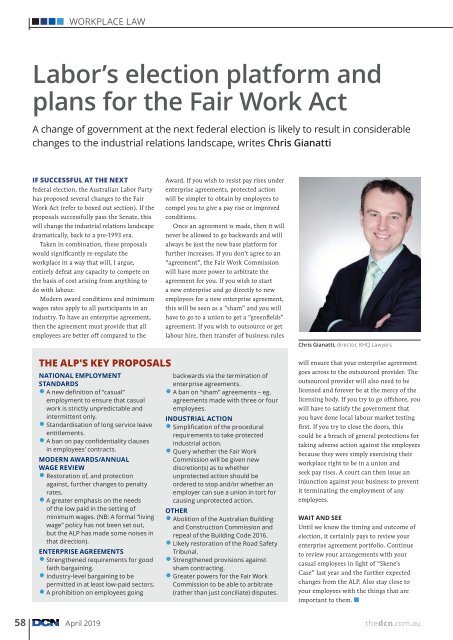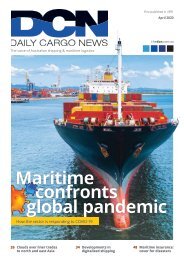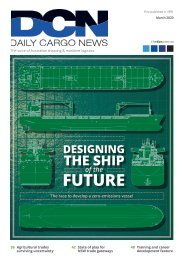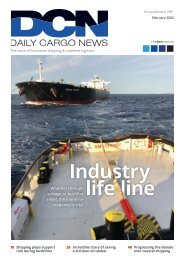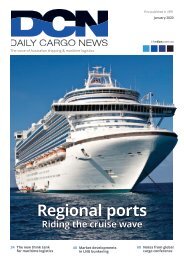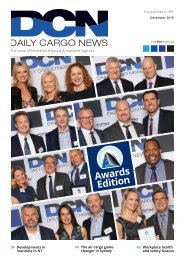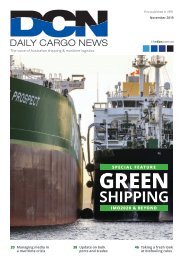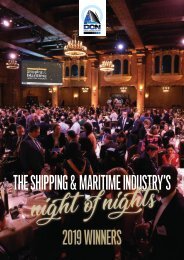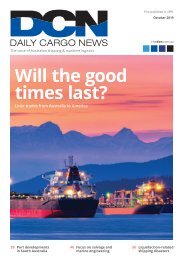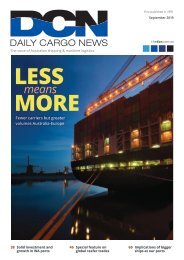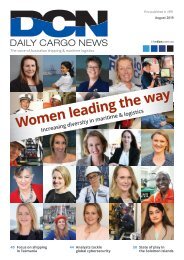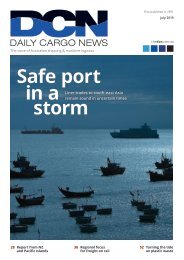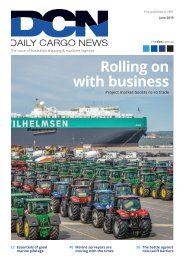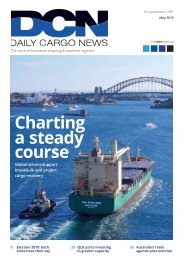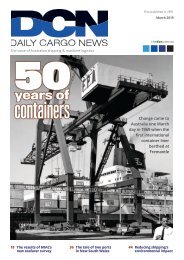DCN April 2019 Edition
Create successful ePaper yourself
Turn your PDF publications into a flip-book with our unique Google optimized e-Paper software.
WORKPLACE LAW<br />
Labor’s election platform and<br />
plans for the Fair Work Act<br />
A change of government at the next federal election is likely to result in considerable<br />
changes to the industrial relations landscape, writes Chris Gianatti<br />
IF SUCCESSFUL AT THE NEXT<br />
federal election, the Australian Labor Party<br />
has proposed several changes to the Fair<br />
Work Act (refer to boxed out section). If the<br />
proposals successfully pass the Senate, this<br />
will change the industrial relations landscape<br />
dramatically, back to a pre-1993 era.<br />
Taken in combination, these proposals<br />
would significantly re-regulate the<br />
workplace in a way that will, I argue,<br />
entirely defeat any capacity to compete on<br />
the basis of cost arising from anything to<br />
do with labour.<br />
Modern award conditions and minimum<br />
wages rates apply to all participants in an<br />
industry. To have an enterprise agreement,<br />
then the agreement must provide that all<br />
employees are better off compared to the<br />
Award. If you wish to resist pay rises under<br />
enterprise agreements, protected action<br />
will be simpler to obtain by employees to<br />
compel you to give a pay rise or improved<br />
conditions.<br />
Once an agreement is made, then it will<br />
never be allowed to go backwards and will<br />
always be just the new base platform for<br />
further increases. If you don’t agree to an<br />
“agreement”, the Fair Work Commission<br />
will have more power to arbitrate the<br />
agreement for you. If you wish to start<br />
a new enterprise and go directly to new<br />
employees for a new enterprise agreement,<br />
this will be seen as a “sham” and you will<br />
have to go to a union to get a “greenfields”<br />
agreement. If you wish to outsource or get<br />
labour hire, then transfer of business rules<br />
Chris Gianatti, director, KHQ Lawyers<br />
THE ALP’S KEY PROPOSALS<br />
NATIONAL EMPLOYMENT<br />
STANDARDS<br />
• A new definition of “casual”<br />
employment to ensure that casual<br />
work is strictly unpredictable and<br />
intermittent only.<br />
• Standardisation of long service leave<br />
entitlements.<br />
• A ban on pay confidentiality clauses<br />
in employees’ contracts.<br />
MODERN AWARDS/ANNUAL<br />
WAGE REVIEW<br />
• Restoration of, and protection<br />
against, further changes to penalty<br />
rates.<br />
• A greater emphasis on the needs<br />
of the low paid in the setting of<br />
minimum wages. (NB: A formal “living<br />
wage” policy has not been set out,<br />
but the ALP has made some noises in<br />
that direction).<br />
ENTERPRISE AGREEMENTS<br />
• Strengthened requirements for good<br />
faith bargaining.<br />
• Industry-level bargaining to be<br />
permitted in at least low-paid sectors.<br />
• A prohibition on employees going<br />
backwards via the termination of<br />
enterprise agreements.<br />
• A ban on “sham” agreements – eg.<br />
agreements made with three or four<br />
employees.<br />
INDUSTRIAL ACTION<br />
• Simplification of the procedural<br />
requirements to take protected<br />
industrial action.<br />
• Query whether the Fair Work<br />
Commission will be given new<br />
discretion(s) as to whether<br />
unprotected action should be<br />
ordered to stop and/or whether an<br />
employer can sue a union in tort for<br />
causing unprotected action.<br />
OTHER<br />
• Abolition of the Australian Building<br />
and Construction Commission and<br />
repeal of the Building Code 2016.<br />
• Likely restoration of the Road Safety<br />
Tribunal.<br />
• Strengthened provisions against<br />
sham contracting.<br />
• Greater powers for the Fair Work<br />
Commission to be able to arbitrate<br />
(rather than just conciliate) disputes.<br />
will ensure that your enterprise agreement<br />
goes across to the outsourced provider. The<br />
outsourced provider will also need to be<br />
licensed and forever be at the mercy of the<br />
licensing body. If you try to go offshore, you<br />
will have to satisfy the government that<br />
you have done local labour market testing<br />
first. If you try to close the doors, this<br />
could be a breach of general protections for<br />
taking adverse action against the employees<br />
because they were simply exercising their<br />
workplace right to be in a union and<br />
seek pay rises. A court can then issue an<br />
injunction against your business to prevent<br />
it terminating the employment of any<br />
employees.<br />
WAIT AND SEE<br />
Until we know the timing and outcome of<br />
election, it certainly pays to review your<br />
enterprise agreement portfolio. Continue<br />
to review your arrangements with your<br />
casual employees in light of “Skene’s<br />
Case” last year and the further expected<br />
changes from the ALP. Also stay close to<br />
your employees with the things that are<br />
important to them.<br />
58 <strong>April</strong> <strong>2019</strong><br />
thedcn.com.au


